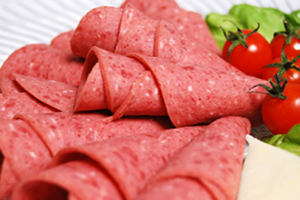Today, it is estimated that the European Union countries live an average of 44 million Muslims. This means the average annual 70 billion Euro Halal Food market. For this reason, the European Union countries, both of these people living within the borders of the Muslim countries Halal Food standard have begun to develop. The material dimension of the work has gained considerable importance for the European economy.
The first step in this regard was laid in July 2013 and Turkey, Austria, the Netherlands, Macedonia, Belgium, Sweden and Croatia joint decision by the standardization organizations CEN / TC 425 Halal Food Project Committee It has been established.
Our country is the only Muslim populated country of the European Standardization Committee (CEN). He has served as the chairman and secretarial of the Halal Food Project Committee of the Turkish Standards Institute. The first meeting of the Committee was held in 2013 in September in Istanbul. Halal Food standardization work is expected to be completed within three years. When the work is completed, all the member states of the European Standardization Committee will cancel and harmonize their national standards.
While these studies continue, various countries within themselves halal food standardization and carries out certification work. In Turkey, Turkish Standards Institute (2011) started its certification studies in July. TSE is based on three standards prepared by the Institute of Standards and Metrology of Islamic Countries with its headquarters in Istanbul.
The first country to make halal food certification in Malaysia is Malaysia. Halal food studies are carried out by the state in Malaysia and internationally certified.
If food producers are requested to do so, Halal Food Certificate It is organized. However, this document does not document that the products are only halal or haram. The certification criteria include a number of criteria such as whether production conditions are documented in terms of cleanliness and hygiene conditions in production, whether production processes are documented, and whether packaging, storage and distribution processes are open. In short, the Halal Food Certificate proves that the standards of the products are in line with human values as well as religious values.
One of the certification bodies providing consultancy services for the companies that want to get Halal Food Certificate is TURCERT. For more detailed information on what this document is, how it will be received and what does it work for, you can contact the TURCERT certification body.



